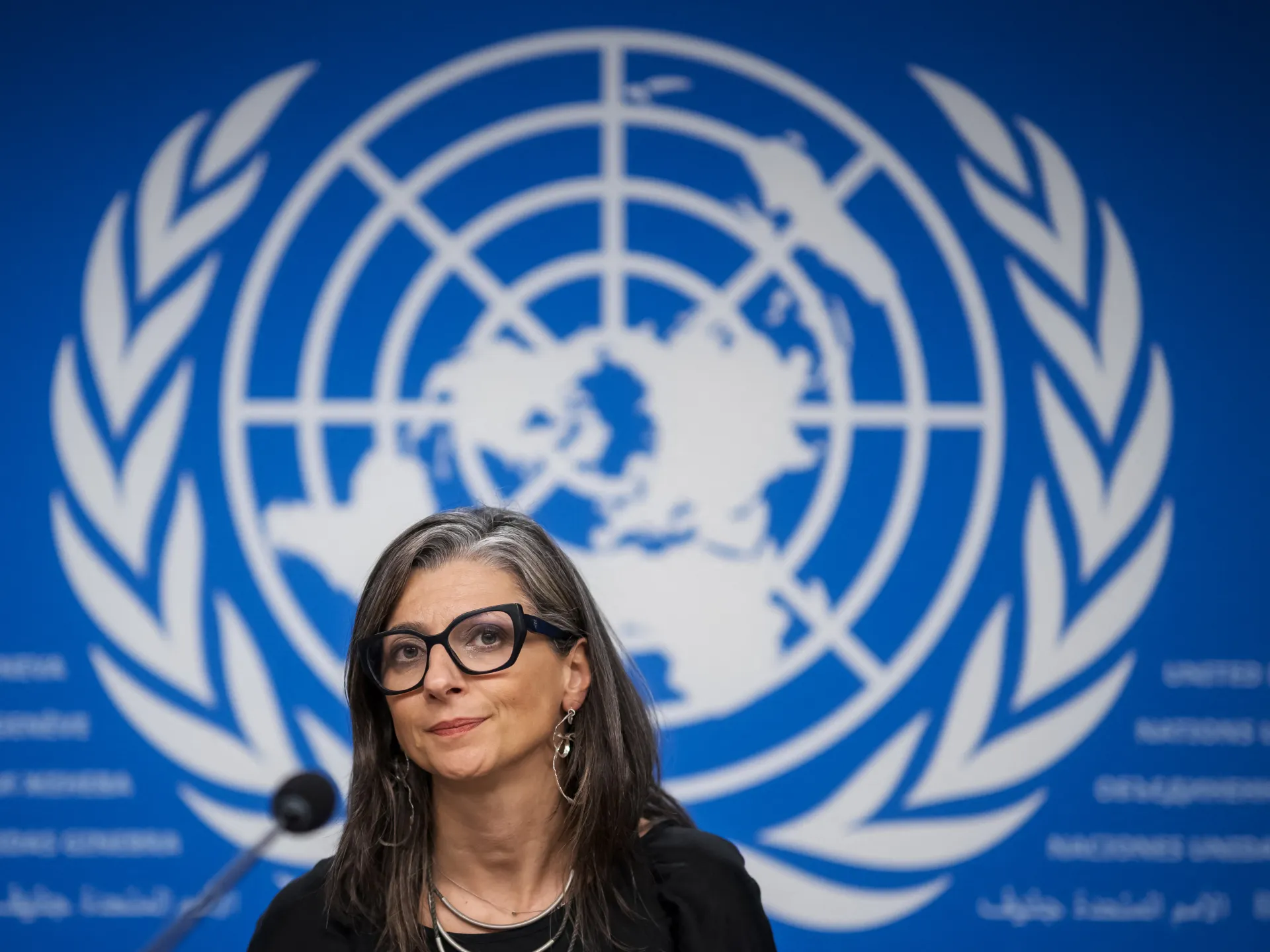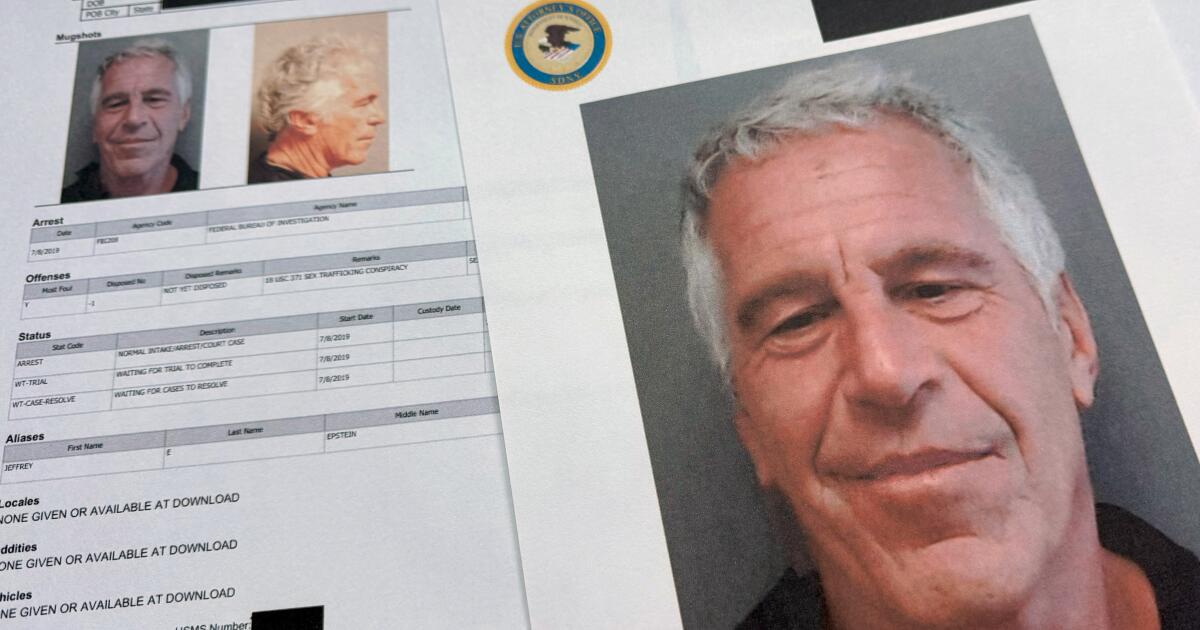NEW YORK — Newly disclosed U.S. government files on Jeffrey Epstein have prompted the resignation of a top official in Slovakia and revived calls in Britain for former Prince Andrew to share what he knows with authorities about Epstein’s links to powerful individuals around the world.
The fallout comes a day after the Justice Department began releasing a massive trove of files that offers more details about Epstein’s interactions with the rich and famous after he served time for sex crimes in Florida.
The prime minister of Slovakia accepted the resignation Saturday of his national security advisor, Miroslav Lajcak, the country’s former foreign minister who once had a yearlong term as president of the U.N. General Assembly. Lajcak wasn’t accused of wrongdoing but left his position after photos and emails revealed he had met with Epstein in the years after the disgraced financier was released from jail.
The disclosures also have revived questions about whether longtime Epstein friend Andrew Mountbatten-Windsor, formerly known as Prince Andrew, should cooperate with U.S. authorities investigating Epstein.
British Prime Minister Keir Starmer on Saturday suggested Mountbatten-Windsor should tell American investigators whatever he knows about Epstein’s activities. The former prince has so far ignored a request from members of the U.S. House Oversight Committee for a “transcribed interview” about his “long-standing friendship” with Epstein.
President Trump’s Justice Department said Friday it had released more than 3 million pages of documents along with more than 2,000 videos and 180,000 images under a law intended to reveal the material it collected during two decades of investigations of Epstein, once a close friend of Trump.
The files, posted to the department’s website, included documents involving Epstein’s friendship with Mountbatten-Windsor and Epstein’s email correspondence with longtime Trump advisor and former White House aide Stephen K. Bannon, New York Giants co-owner Steve Tisch and other prominent contacts with people in political, business and philanthropic circles, including billionaires Elon Musk — another former Trump advisor — and Bill Gates.
Other documents offered a window into various investigations, including ones that led to sex trafficking charges against Epstein in 2019 and his accomplice and longtime confidant Ghislaine Maxwell in 2021, and an earlier inquiry that found evidence of Epstein abusing underage girls but never led to federal charges.
Slovakian official resigns
Robert Fico, Slovakia’s prime minister, said Saturday that he had accepted Lajcak’s resignation.
Lajcak hasn’t been accused of any wrongdoing, but emails showed that Epstein had invited him to dinner and other meetings in 2018.
The records also include a March 2018 email from Epstein’s office to former Obama White House general counsel Kathy Ruemmler, inviting her to a get-together with Epstein, Lajcak and Bannon, the conservative activist who was Trump’s White House strategist in 2017.
Lajcak said his contacts with Epstein were part of his diplomatic duties. Pressure mounted for his ouster from opposition parties and a nationalist partner in Fico’s governing coalition.
Draft indictment detailed Epstein’s abuse
The FBI started investigating Epstein in July 2006 and agents expected him to be indicted in May 2007, according to the newly released records. A prosecutor wrote up a proposed indictment after multiple underage girls told police and the FBI that they had been paid to give Epstein sexualized massages.
The draft indicated prosecutors were preparing to charge not just Epstein but also three people who worked for him as personal assistants.
According to interview notes released Friday, an employee at Epstein’s Florida estate told the FBI in 2007 that Epstein once had him buy flowers and deliver them to a student at Royal Palm Beach High School to commemorate her performance in a school play.
The employee, whose name was blacked out, said some of his duties were fanning $100 bills on a table near Epstein’s bed, placing a gun between the mattresses in his bedroom and cleaning up after Epstein’s frequent massages with young girls, including disposing of used condoms.
Ultimately, the U.S. attorney in Miami at the time, Alexander Acosta, signed off on a deal that let Epstein avoid federal prosecution. Epstein pleaded guilty instead to a state charge of soliciting prostitution from someone under age 18 and got an 18-month jail sentence. Acosta was Trump’s first Labor secretary in his first White House term.
Epstein offers to set Andrew up on a date
The records have thousands of references to Trump, including emails in which Epstein and others shared news articles, commented on his policies or gossiped about him and his family.
Mountbatten-Windsor’s name appears at least several hundred times, including in Epstein’s private emails. In a 2010 exchange, Epstein appeared to set him up for a date.
“I have a friend who I think you might enjoy having dinner with,” Epstein wrote.
Mountbatten-Windsor replied that he “would be delighted to see her.”
Epstein, whose emails often contain typographical errors, wrote later in the exchange: “She 26, russian, clevere beautiful, trustworthy and yes she has your email.”
Concerns over how Justice Department handled records
The Justice Department is facing criticism over how it handled the latest disclosure.
One group of Epstein accusers said in a statement that the new documents made it too easy to identify those he abused but not those who might have been involved in Epstein’s criminal activity.
“As survivors, we should never be the ones named, scrutinized, and retraumatized while Epstein’s enablers continue to benefit from secrecy,” it said.
Meanwhile, Rep. Jamie Raskin of Maryland, the top Democrat on the House Judiciary Committee, pressed the department to let lawmakers review unredacted versions of the files as soon as Sunday. He said in a statement that Congress must assess whether the redactions were lawful or improperly shielded people from scrutiny.
Department officials have acknowledged that many records in its files are duplicates, and it was clear from the documents that reviewers took different degrees of care or exercised different standards while blacking out names and other identifying information.
There were multiple documents where a name was left exposed in one copy but redacted in another.
Epstein’s ties to powerful on display
The released records reinforced that Epstein was, at least before he ran into legal trouble, friendly with Trump and former President Clinton. None of Epstein’s victims who have gone public has accused Trump or Clinton of wrongdoing. Both men said they had no knowledge Epstein was abusing underage girls.
Epstein killed himself in a New York jail in August 2019, a month after being indicted.
In 2021, a federal jury in New York convicted Maxwell, a British socialite, of sex trafficking for helping recruit some of Epstein’s underage victims. She is serving a 20-year prison sentence. She was recently relocated to a less-restrictive lockup in Texas, which has drawn additional criticism of the Trump administration.
U.S. prosecutors never charged anyone else in connection with Epstein’s abuse. One victim, Virginia Roberts Giuffre, sued Mountbatten-Windsor, saying she had sexual encounters with him starting at age 17. The now-former prince denied having sex with Giuffre but settled her lawsuit for an undisclosed sum.
Giuffre died by suicide last year at age 41.
The Associated Press is reviewing the documents released by the Justice Department in collaboration with journalists from Versant, CBS and NBC. Journalists from each newsroom are working together to examine the files and share information about what is in them. Each outlet is responsible for its own independent news coverage of the documents.
Sisak, Kirka and Finley write for the Associated Press and reported from New York, London and Washington. AP journalists from around the country contributed to this report.

